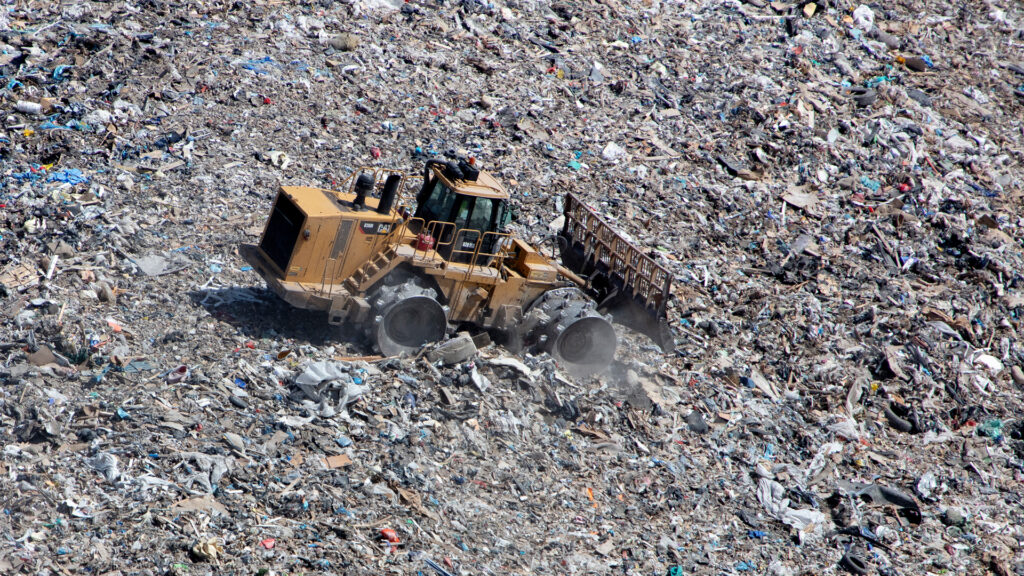By Ken Russell and Michael Rosenberg
On Sept. 17, along with several hundred citizens concerned about the future of Miami-Dade garbage, we spoke at a county commission meeting to oppose their plans to build the country’s largest incinerator.
We reminded the commission that we’ve been burning garbage since fire was invented and haven’t advanced beyond the caveman mentality of burning.
In Miami-Dade, we continue to believe that burning is the only answer. Now that we know about greenhouse gas emissions and the climate crisis, can’t we agree that Miami-Dade should lead by example, fighting for our planet instead of over which city should host the incinerator?
Four sites were being considered: the existing site in Doral, a private site in Medley, an idle county airstrip near Miramar called Airport West and a privately owned tree farm outside Hialeah Gardens.
Recently, Miami-Dade Mayor Danielle Levine Cava suggested the new incinerator may be rebuilt on the same Doral site damaged by a fire. For the city of Miramar, which had strenuously opposed one plan to build a new incinerator near the Miami-Dade-Broward line, downwind from Miramar, it was welcomed news, but bad news for Doral.
Miramar Mayor Wayne Messam had rejected the insistence of incinerator lobbyists that the “new” models smell better, make energy and are less toxic. Still, Miami-Dade’s own state-of-the-waste report says the important part out loud: “There is no large-scale commercial success of carbon dioxide capture and sequestration out of waste-to-energy flue gas.”
Translation: Garbage incinerators fuel global warming. The technology is not yet commercially viable for widespread use in this context.
Despite a pledge to reduce our county’s carbon footprint, the mayor and commissioners may leave a legacy of making it worse.
So what’s the alternative? Has Miami-Dade really examined all of the options?
Let’s start with reducing our waste. Miami-Dade produces twice the garbage per person than the average county. Reducing construction and demolition debris would free up much of our landfills. This can be achieved by recycling concrete, steel and glass — something done worldwide, but not here.
Another option is to implement new policies for the hospitality industry focusing on single-use plastics and packaging. And, of course, we can do our part at home.
Reducing our waste is just the start. We must also change our concept of landfills.

Policymakers are right to point out that landfills, as we know them, are just as bad at producing methane and greenhouse gas as incinerators, so what else can we do?
The answer involves the zero waste philosophy, which is successfully practiced in many cities and countries without burning trash. Zero waste does not mean “no trash;” it’s a design principle where we reduce waste, divert what’s possible through recycling and composting.
Take out the smelly stuff, and the landfill will no longer contribute to climate change. Cities like Austin, Texas, and Boulder, Colorado, have successfully embraced zero waste without incinerators.
Some say composting is unrealistic, but we’ve never tried it. Starting with commercial incentives and mandates, restaurants, offices and hotels can significantly impact the diversion of food scraps from landfills.
The cities and counties manage yard waste, which can easily be separated for compost. Private residents will catch on as they have in so many other cities. All of this green waste goes through an anaerobic composting process that does not increase our carbon footprint and can still produce energy.
The no-burn alternative is such an afterthought in reporting and conversation that the debate only focuses on where we’ll burn rather than if we should.
The next steps are paused but still happening too fast.
Commissioner Raquel Regalado supported the deferral, stating, “We should look at all of our options, how this impacts everyone, and find a solution that works not just for us right now, and our immediate issue, but for future generations.”
With 10 years to build the incinerator and billions on the line, let’s take the time to vet all our options truly. “Burn baby burn” should not be the Miami-Dade motto.
Ken Russell is a former Miami commissioner and a lobbyist for the Sierra Club. Michael Rosenberg is a local community activist. This opinion piece was originally published by the Miami Herald, which is a media partner of The Invading Sea. Banner photo: Incinerator smokestacks (iStock image).
Sign up for The Invading Sea newsletter by visiting here. To support The Invading Sea, click here to make a donation. If you are interested in submitting an opinion piece to The Invading Sea, email Editor Nathan Crabbe at nc*****@*au.edu.



